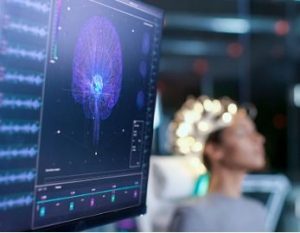What is Neurotechnology? The Emerging Field That’s Changing Minds
We're already entwined with neurotechnology in ways that once seemed the exclusive domain of science fiction. From direct interfaces like brain-computer interfaces (BCIs) that enable individuals to control prosthetic limbs or communicate without physical movement, neurotechnology is steadily blurring the lines between the brain's organic processes and digital augmentation.
Upskilling in the Allied Health Professions
Partly propelled by the pandemic and partly by the momentum of technological innovation, the last few years have marked the beginning of a whirlwind of rapid change within the healthcare sector. The use of telehealth has stood the test of time, now a permanent option at many hospitals and private practices across the country. Meanwhile, a host of AI-based tools have entered the scene, modernizing diagnostics, patient monitoring, and interpretations of images and scans. Additionally, a shift in the type of healthcare that will be in the highest demand is also underway.
How AI Can Solve Bottlenecks in the Lab and Beyond
In the short amount of time since AI has been actualized, its powerful abilities in data analysis, pattern recognition, and prediction have been widely used to optimize business operations—revolutionizing fields like tech, finance, customer service, and manufacturing just to name a few. Outside of corporate applications of the technology—which primarily serve to reduce business costs and fatten bottom lines—AI also stands to revolutionize the sciences.
What is Precision Medicine? The Future of Tailored Healthcare
Precision medicine, a revolutionary approach to healthcare, tailors treatment to the unique genetic makeup of an individual. This method departs from the traditional “one-size-fits-all” approach, considering the unique genetic variations, lifestyle, and environmental factors that influence each person's disease progression and response to treatment.
Robotic Process Automation (RPA) of Office Tasks in Healthcare
Robotic process automation (RPA), a transformative tool in the realm of healthcare, carries the potential to revolutionize back-office tasks. Emerging as a digital ally for healthcare professionals, RPA significantly reduces the administrative burden, allowing for a larger focus on patient care. This technology automates repetitive and time-consuming tasks, enhancing efficiency, reducing errors, and offering a more streamlined approach to healthcare management.
Why Study Bioinformatics? A Conversation with Professor and YouTuber Danny Arends, PhD
While some bioinformaticians spend their entire careers working on highly specific programs or applications in limited fields, others spend much of their time in communication between the fields they combine: biology and computer science. One such individual is Danny Arends, PhD, an assistant professor at the University of Northumbria in Newcastle upon Tyne in the north of England.
How Hospital Employment Has Changed in 20 Major Metros
Hospitals have added more than half a million jobs nationwide over the past decade. Just in the past year, hospital employment grew by 152,000, or about 3 percent, Bureau of Labor Statistics data shows. The U.S. population is growing and aging, and people are living longer.
The Challenges of Natural Language Processing (NLP) in Healthcare Tech
To say that NLP has been a hot topic of 2023 would be an understatement. When OpenAI released ChatGPT—the first open-source generative AI model—it launched a paradigm shift in the tech world. Companies like Google, Amazon, and Meta were sent scrambling to the drawing boards to conjure up their own versions.
How the Cancer Genome Atlas Drives Groundbreaking Research
In 2005, TCGA sought to collect and analyze large-scale genomic data from thousands of tumor samples across multiple cancer types. The project focused on characterizing the genetic mutations, gene expression patterns, and epigenetic modifications in cancer cells.
What is Information Blocking Compliance in Healthcare and Why is it Prevalent?
The digital revolution in the health sector has long promised a future of a smoother, faster healthcare system: a new reality where hospitals’ clinical workflow will be streamlined, where interactions with insurance companies will be automated, and spreadsheets and fax machines will become relics of the past.









